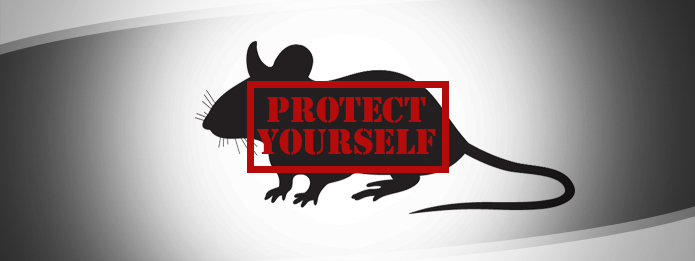
Rats are small rodents whose bite can transmit diseases to humans and livestock such as salmonellosis, leptospirosis, murine typhus, and rat bite fever. The roof rat and Norway rats are even known carriers of the Plague.
It’s not uncommon for rats to bite humans. If they are cornered and can’t find a way out, they will attack and bite. It is best to seek professional rat control for safe removal if you have rats in your home.
Symptoms and Treatment
Rat bites can be deep or shallow. Bites can be sole puncture wounds or multiple cuts. Bleeding will occur often in the bitten area. All rodent bites should be carefully cleaned and disinfected immediately.
The usual symptoms of a rat bite include redness, pain, swollen area, and if there is a secondary infection, the result is a pus-filled, weeping wound. Other common symptoms associated with rat bites include vomiting, muscle aches, headache, joint pain, rash, and fever.
Rat bites are extremely dangerous. Rat bites, therefore, must be taken seriously and persons who are bitten by rats must seek professional medical help immediately to offset any serious illnesses. Visiting a doctor is critical due to the spreadable nature of some of the diseases associated with rat bites.
The Greatest Threats of Rats
Evidence of rats in your home include scurrying noises, squealing sounds, rustling in attic spaces and walls, small droppings and footprints. They creep in and will help themselves to your food, chew wires, damage clothes and walls.
Chewing
Rats chew on pretty much anything they find and that is why they are so destructive. Their front teeth grow continuously, so they have to chew constantly to wear their teeth down. Once inside your home, rats will nibble through electrical wiring, which can result in house fires. Although wood is their favourite material to chew on, they also gnaw through walls, HVAC ducts and PVC pipes.
Contamination and Disease
Rats have parasites that can transmit diseases such as the plague, typhus, rat bite fever and food poisoning. Transmission can be done via dry droppings, shed hair and dander. These can cause allergy-like reactions in people.
Parasitic Insects
The habitats of rats are known to have mites, fleas, and ticks. These insects use the rats as hosts and can transmit diseases via blood exchange.
Rat mites are tiny parasites, no bigger than a full stop that ends a sentence. Transmission of these mites will occur when the rats they live on leave their nests, but humans can get them even if the rats die. Rodent mites usually are a bother even after rat control measures have eliminated rat infestation. These mites are in search of a substitute food source. Bites from these mites can trigger severe itching and painful dermatitis.
Rat control measures must be initiated to combat rat infestation. Truly Nolen specialists are available to assist you if you notice that rats are occupying your home. Our professionals can scout out your house for rat infestation and provide you with the right advice on how to keep your home secured from rats. We are also capable of applying effective control procedures to eliminate the rat invasion of your home.